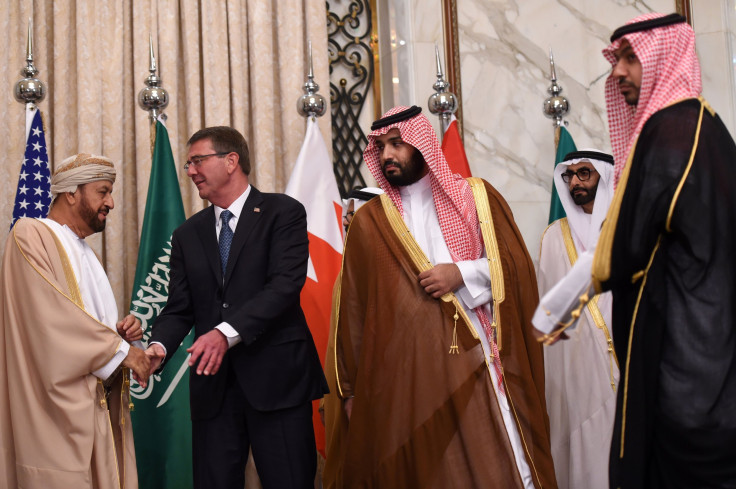Saudi Arabia To Secure $10 Billion Bank Loan To Fix Budget Shortfall Caused By Lower Oil Prices

Saudi Arabia is taking out a $10 billion loan from a consortium of global banks as the kingdom seeks to plug a widening budget gap caused by the fall in crude oil prices.
The landmark five-year loan is Saudi Arabia’s first international debt issuance in 25 years and a sign of the country’s newfound dependence on foreign capital, Financial Times reported Wednesday. The Saudi loan arrives as other Gulf region governments such as Qatar and Oman begin to tap global bond markets to counter the nearly two-year-long slump in oil markets.
Crude prices dropped by about 70 percent between September 2014 and February 2016 as rising volumes of oil supplies outpaced the demand growth in key markets such as China and Europe. Amid plunging Saudi oil-export revenues, the kingdom’s budget deficit ballooned to $98 billion last year.
Saudi officials in response have burned through $150 billion in financial reserves since late 2014, and the fiscal deficit is expected to grow to 19 percent of gross domestic product in 2016, Financial Times noted. The government estimated recently that the national debt would increase by 50 percent over the next five years as the country endures the largest oil glut since the 1980s.
Still, the oil-rich kingdom last weekend blocked a much-anticipated deal among oil producers to freeze production to January levels in an effort to bolster prices. Talks between OPEC and non-OPEC oil producers in Qatar on April 17 crumbled following a clash between Saudi Arabia and Iran.
Saudi Arabia, the world’s largest oil exporter and de facto head of the 13-member OPEC cartel, said it would not freeze its output levels unless Iran followed suit. Iran, which was absent from the talks, said it was unwilling to lock production to January levels until it regained the market share it lost during years of economic sanctions.
Saudi and Iranian officials had stated similar positions in the months leading up to the meeting in Doha. Yet the collapse in talks still sent benchmark Brent crude prices under $40 a barrel Monday.
Saudi Arabia’s $10 billion loan is larger than the $6 billion to $8 billion loan it initially sought to secure this spring. The kingdom increased the loan size after receiving strong demand from a wide range of banks, bankers close to the transaction told the Wall Street Journal. Banks and Saudi officials have agreed to the terms of the loan and are now just waiting to finalize the documentation, the people said.
Participating lenders include U.S. banks JPMorgan, Goldman Sachs and Morgan Stanley along with Asian lenders Bank of Tokyo-Mitsubishi UFJ, Industrial and Commercial Bank of China and Mizuho Bank, the Journal reported.
News of the loan comes as U.S. President Barack Obama arrived in Riyadh Wednesday to attend the Gulf Cooperation Council summit. Obama and King Salman met amid deepening tensions between the two nations over Iran, the fight against terrorism and the potential release of documents said to implicate Saudi officials in the Sept. 11 terrorist attacks on U.S. soil.
© Copyright IBTimes 2024. All rights reserved.





















